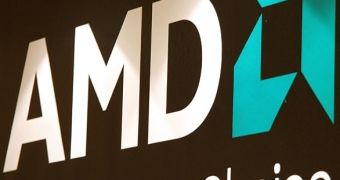Advanced Micro Devices CEO Hector Ruiz said during the meeting with the company's shareholders that he saw more changes coming as part of the restructuring policy. He also admitted that AMD had been a poor performer on the CPU market during 2007, but the new restructuring plans would make AMD "consistently" profitable.
Despite the fact that his keynote was a little too cryptic, his estimations point to the fact that the chip manufacturer will gain some significant ground by the second half of 2008. It seems like the first unit AMD will discard on its way to profitability is the company's consumer division.
However, this business is pretty hard to sell, especially given the fact that the chip manufacturer would like to preserve some of its valuable intellectual property related to the mobile processor manufacturing process.
The company acquired the consumer unit back in 2006 along with ATI. Unlike the graphics business that constantly gained ground and accounted for quite some revenue the consumer business bled money during the last quarters. Its poor performance is mostly related to the problems encountered by its biggest customer, the mobile phone manufacturer Motorola.
When things started to go wrong with Motorola, it cut down on Xilleon orders and put AMD in a weak position. At the moment the consumer unit is alive thanks to its second biggest customer, Sony, as it is demanding more and more system-on-a-chip units for its Bravia TV lineup.
According to the latest financial reports, the consumer division managed to achieve an $81 million income and posted about $8 million in losses for the Q1 2008 alone. During the last fiscal quarter of 2007, it accounted for $109 million income, but only $12 million profit.
AMD is also expected to sell one of its semiconductor manufacturing plans as part of its "asset-smart" policy. However, this would turn the company into a simple CPU designer, just like Sun, but a fabless chip company has little chances to fight against the industry's major players such as Intel.

 14 DAY TRIAL //
14 DAY TRIAL //